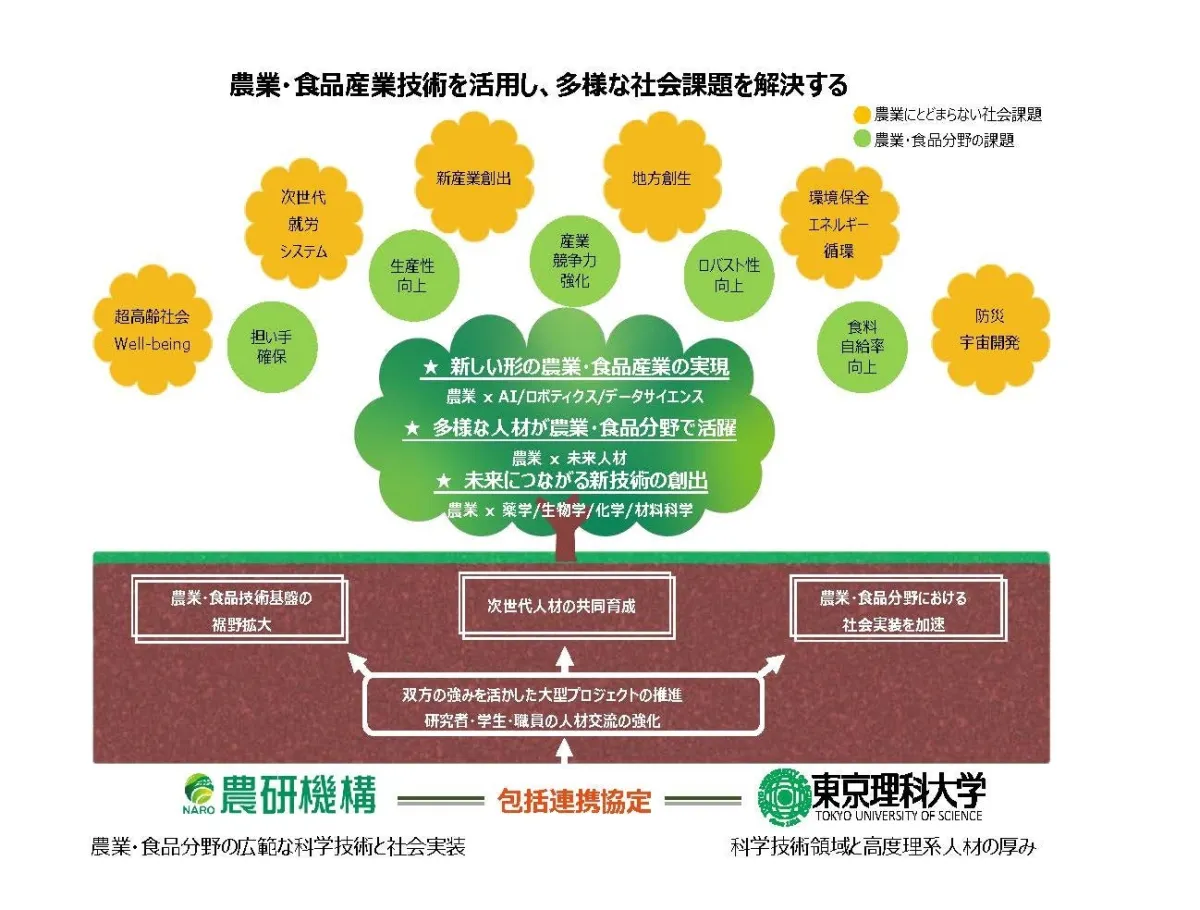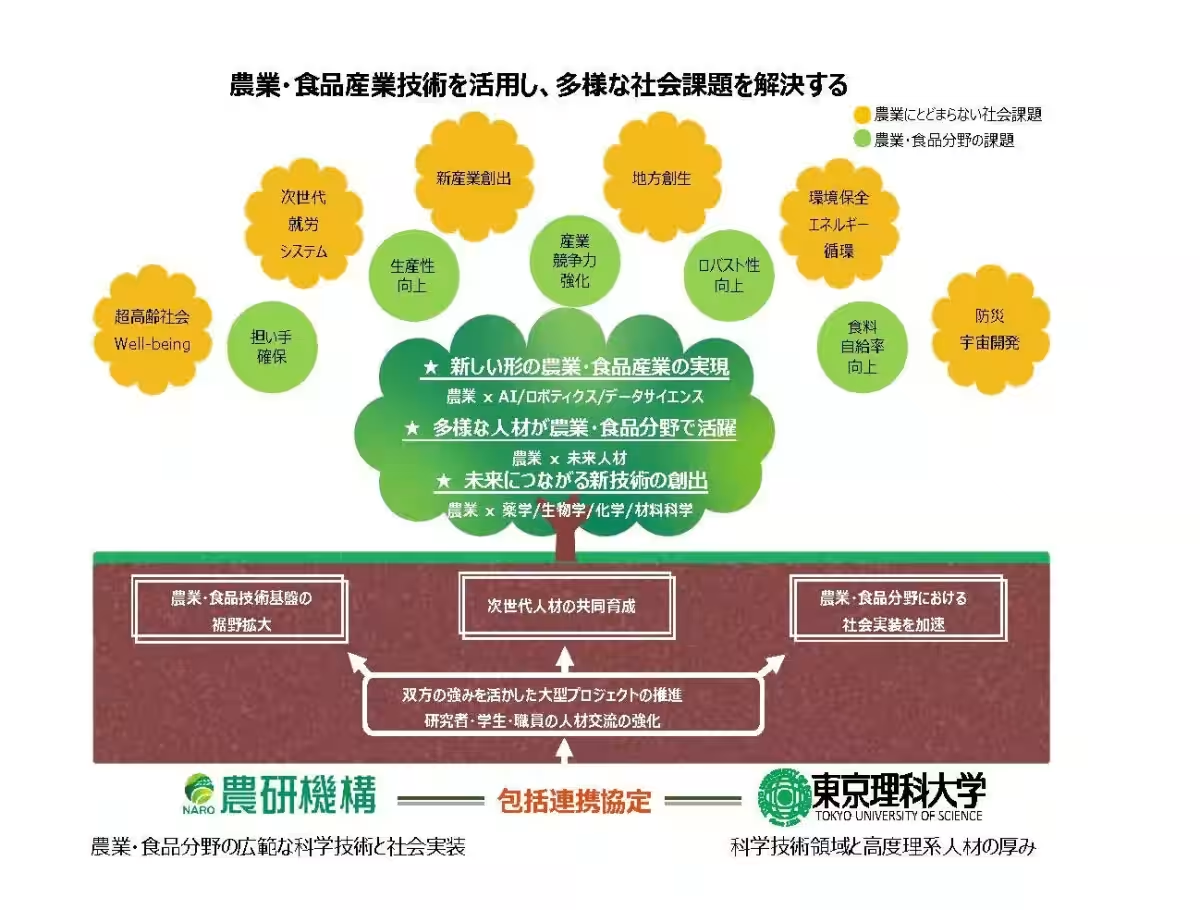

Cooperation Agreement Signed Between NARO and Tokyo University of Science for Society 5.0 Agriculture
Collaboration Agreement Overview
On April 14, 2025, the National Agriculture and Food Research Organization (NARO) signed a comprehensive cooperation agreement with the Tokyo University of Science (TUS). The aim of this partnership is to accelerate the realization of Society 5.0 in the agricultural and food sector, leveraging both institutions' strengths to tackle various social issues.
About NARO
Founded from the Agricultural Experiment Station established in 1893, NARO is Japan's largest research institution in agriculture and food. It is famed for its development of grape varieties such as 'Shine Muscat' and sweet potato varieties like 'Beni Haruka.' Under the leadership of President Kazuyo Kumagai, appointed in 2018, NARO is focusing on enhancing food self-sufficiency, strengthening industry competitiveness, and promoting productivity while maintaining environmental sustainability. NARO employs advanced technologies like AI and robotics to merge agricultural and food industry techniques.
About Tokyo University of Science
Established in 1881 as the Tokyo Physics School, the Tokyo University of Science has a long-standing tradition in science and technology education. With a commitment to fostering scientific understanding to contribute to national development, TUS bases its educational framework on meritocracy, ensuring high research capabilities. Last year, under President Masatoshi Ishikawa, TUS initiated the 'TUS SciTech Plan' to address complex modern issues like super-aging, regional revitalization, and environmental conservation through collaborations both within and outside the institution.
A New Era of Collaboration
As represented by this agreement, the two institutions intend to combine their unique strengths. The partnership will focus on large-scale joint projects and promote diverse talent exchange, enhancing the technological basis in agriculture and food sectors and accelerating social implementation.
By nurturing the next generation of talent, the partnership aims to realize innovative applications of agriculture through AI and other technologies. This collaboration is not just about advancing agricultural techniques; it's also about fostering diverse talent in the agricultural and food sectors, creating new technologies, and addressing significant challenges like labor shortages in farming and enhancing food self-sufficiency. Furthermore, the initiative seeks to contribute to promoting well-being and solving pressing social issues in the context of an aging society and regional revitalization.
Both organizations are committed to mutual objectives established in the cooperation agreement, providing a framework that supports a collaborative approach to solving various social challenges. This includes not only enhancing agricultural effectiveness but also ensuring that advancements resonate through to societal well-being and sustainability.
Conclusion
In conclusion, the agreement between NARO and Tokyo University of Science marks a significant step towards integrating agricultural innovation with societal needs. By working together, they hope to pioneer a comprehensive approach that leverages research, technology, and education to foster a sustainable agricultural future in line with the goals of Society 5.0.
For more information on NARO, visit NARO. For Tokyo University of Science, visit Tokyo University of Science.

Topics Other)










【About Using Articles】
You can freely use the title and article content by linking to the page where the article is posted.
※ Images cannot be used.
【About Links】
Links are free to use.